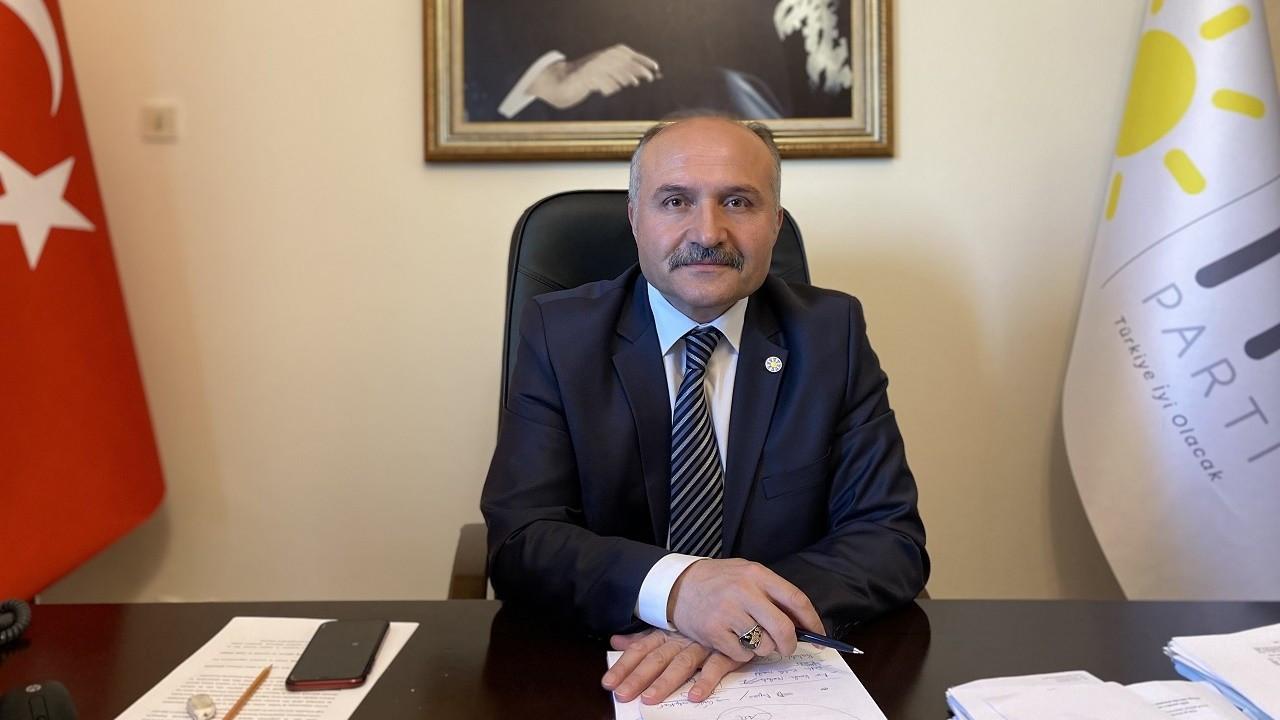BY MARUF BUZCUGIL AND CANAN SAKARYA
Q&A with Erhan Usta, IYI Party Parliamentary Group Deputy Chairman
WHAT’S YOUR POSITION ON THE BURDEN PLACED BY FX RATES ON THE TREASURY?
Foreign exchange (FX) and gold-denominated or indexed borrowing has continued since July 2018. Its added cost has reached TRY 565bn, up to the current moment, according to a study we conducted when USD/TRY was 14.70. We made TRY 105bn of this figure as interest or principal payment as the redemption came. We’ll pay TRY 460bn by 2026. The disappearance of the Central Bank’s (CB) reserves has made TRY vulnerable. The government’s series of mistakes, starting with the dismissal of CB Governor Naci Agbal in March and which continued with interest rate cuts from September onwards, has paralyzed the economy. The interest rate burden has been shouldered by the CB and the Treasury as a result of the FX-protected TRY deposit accounts (KKM). We don’t exactly know the maturity of the KKM as it isn’t shared transparently. But I estimate the cost that has been incurred to date at TRY 100bn. The government said they will introduce inflation-indexed bonds as borrowing is gradually becoming difficult. An economic policy, including cheap loans that protect the high-income group against inflation, is being pursued. Public banks provide loans with a 12-year interest rate to those who will pay a monthly installment of TRY 15,00020,000 in an environment, where inflation has reached 70%. Capital has been injected into public banks for the last three years. Revenue is being transferred to a certain segment through public banks to demonstrate that the interest rate is being kept down. The deposit rate is compulsorily kept at 17%, however, banks are allowed to lend at 40%. This is a revenue transfer to the banking sector. There is a deterioration in income distribution; this revenue transfer should be stopped. There is a serious food and shelter crisis at this point in the country. Turkey is experiencing four negatives at the same time.
CAN YOU OUTLINE THESE NEGATIVITIES?
High inflation, a high current account deficit, high budget deficit, and low growth. The worst part is that the government is nothing to solve these problems.
No program is implemented. The local currency is protected by the policy rate and reserves. But the policy rate has been abandoned and the reserves have fallen to negative TRY 50bn. The FX rate hike is held steady the costly KKM scheme and around USD 2bn in reserves are spent to prop up the currency every week.
WHAT DO YOU PROPOSE TO OVERCOME THIS SITUATION?
Trust should be built. Turkey should introduce a monetary policy to fight inflation. However, there is no government impetus and skilled team to implement such a program resolutely. This program will need to have three aspects, including monetary policy, fiscal policy, and structural reforms. The inflation expectation has deteriorated and there is no anchor for people when they set a price. The popular opinion towards the CB’s independence should be highlighted. Turkey should introduce monetary policy, announce a comprehensive strategy to collect reserves, and be transparent by remaining loyal to these tactics. The market is priced worst in a non-transparent environment. Fiscal policy has different aspects – expenditures, revenue, and finance. Current expenditures in the public sector should be reduced with a savings circular. It’s important to be transparent about issues such as public construction, car rentals, and organizations. There is also a burden coming from the public-private partnership projects which should be reviewed.
IS IYI PARTY CONSIDERING AMENDING LAW NO. 5018 ON PUBLIC FINANCIAL MANAGEMENT AND CONTROL WITHIN THE FRAME OF FISCAL POLICY?
The government enacted this law in December 2003 and took steps backward on everything from budget preparation to appropriation. Compromises that were given should be reversed and fiscal policy strengthened. The Public Procurement Law is among the things that we’ll focus on in the upcoming period. A tender system that will minimizes exceptions in line with European Union norms is necessary. Tax, including the value-added tax (VAT), is another field that must be reformed. Direct and indirect taxes have become unbalanced. Turkey is in the lower half of OECD countries in terms of taxes collected through income. Capital gains taxes, income tax, and corporate income tax are the areas we’ll focus on. Turkey doesn’t levy taxes on fields such as interest incomes and stock exchange and there are constant exceptions being made. We need to transition to a declaration procedure in taxation of interest income and income from moveable capitals over time. Withholding will be the final tax here. Taxation of urban income is the second leg of this. Turkey should levy taxes on urban incomes formed by those overseeing public services and benefitting from development regulations.
VAT doesn’t function in Turkey. The government has a debt of TRY 400bn. VAT should be improved. The reduced rate has become widespread. A simple, understandable tax system that will secure justice is also required for the stamp tax and fees in order to clear the way for trade and investment. There are also many ongoing expenditure programs that have been reprioritized that should be reviewed.
The third leg will be financing. Borrowing should be carried out within the frame of a well-thoughtthrough finance strategy. Advisors to the Treasury previously signed loan agreements. That has been changed. I think that the Treasury and Finance Ministries should be separated.
We attach importance to audits for structural reform. The audit office should be re-activated. There should be a tax audit institution that holds sway.
“Turkey is experiencing four negatives at once: high inflation, high current account deficit, high budget deficit, and low growth. The country should implement a monetary policy to fight inflation and a program consisting of three legs – monetary policy, fiscal policy, and structural reforms.”
AS A PART OF THE NATION ALLIANCE, ARE YOU THINKING ABOUT INTRODUCING A JOINT ECONOMIC COMMITMENT PRIOR TO THE ELECTION?
There should be one. But there is a proper time for this. This should be done after a joint presidential candidate is determined and the election schedule is set. Right now, the alliance is working on issues such as the reestablishment of the State Planning Organization (DPT), the Economic and Social Council, and the CB. We are also working towards a joint statement.










